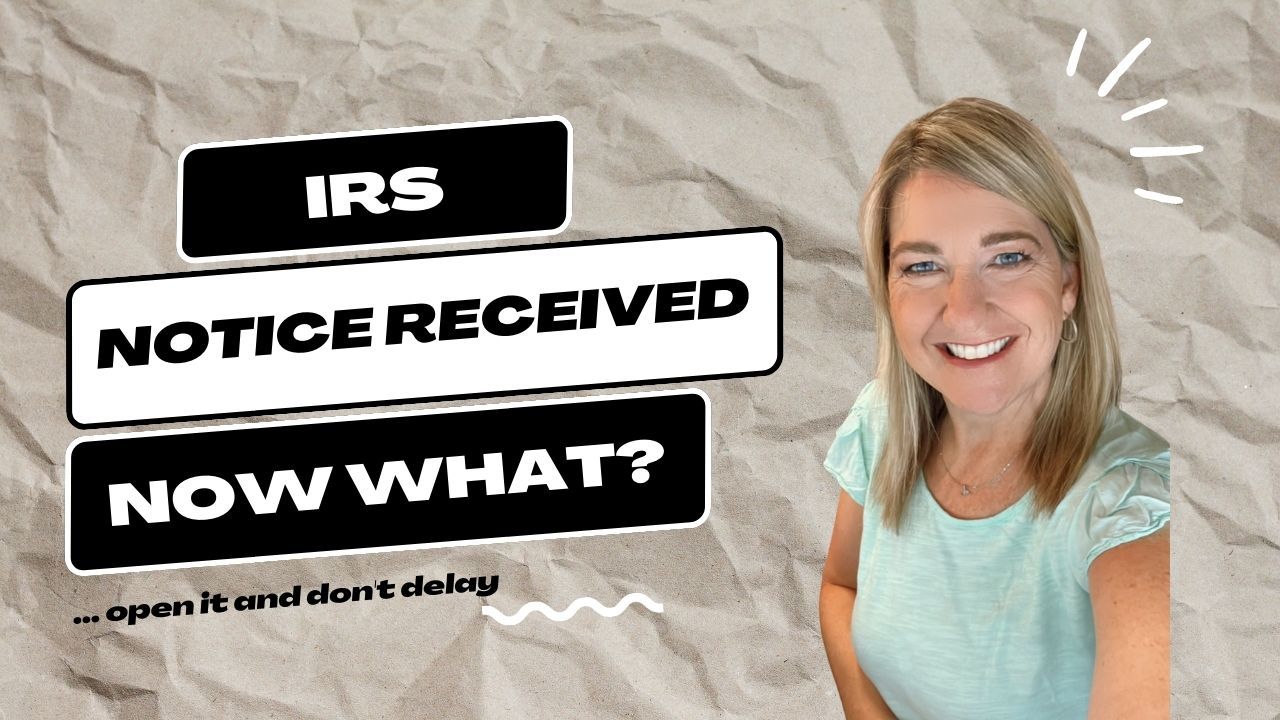
The IRS is catching up post-pandemic and notices are rolling out... and they are just getting started. We are currently seeing IRS notices for tax year 2020 being sent to taxpayers in late 2022 to early 2023.
Note that the IRS will never call you, those phone calls are SPAM. But the IRS will mail you notices, and are doing so!
What do you do when you receive an IRS notice? Here are a few tips on what actions to take.
1. Open it immediately
Do not set a notice from the IRS aside to get lost in junk mail. It is an immediate open.
It may just be a notice about a change in address, a notification of a refund coming your way....or it may be that something triggered their system and they say you owe money, didn't report income, didn't qualify for a credit you claimed... or the dreaded notice that you have been selected for a review or audit.
2. Notify your tax preparer
For all informational notices, like a tax refund is coming or a notification of change in address, need to just be filed for your records.
For any notice that says you owe or there was a discrepancy, notify your tax preparer asap. Upload the notice to their client portal or drop it off in their office.
In many cases, your preparer can open a tax resolution case and help you get to the bottom of it.
3. If you don't have a tax preparer, it's time to get an EA or CPA
Do not try to represent yourself to the IRS.
Would you represent yourself in court instead of hiring an attorney?
The IRS will see self-represented individuals coming a mile away. Hire an EA or CPA to represent you if you don't have one already.
4. File your current taxes
If you have an issue with a prior year's tax return that is open, it is super important that you keep your current taxes filed and paid.
In fact, an EA or CPA that will help you with resolving a past due tax bill or discrepancy won't even start the work until you are up to date with your current filings.
5. If you owe, you will pay
There are very few cases where the IRS forgives debt. If you owe, they will get their money in one way or another.
The IRS is not going to negotiate unless your EA or CPA can prove you can't pay and will never be able to pay.
Most cases with the IRS end up in an installment payment plan.
Now if there was an error, this is something that your CPA or EA can help resolve. But not paying tax due and not setting up a payment plan is not going to go away. Instead, it will compound and the tax due will just grow larger.
6. Don't snooze, you will lose
Once again, don't put off an IRS notice and think it will go away.
Notices always have a small window in which you can respond before it escalates. It is so important to get your EA or CPA involves immediately.
Penalties and interest issued by the IRS are not something you want to pay in addition to taxes!




